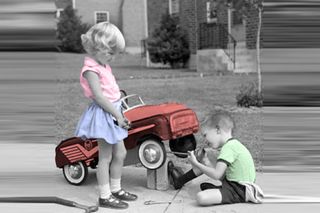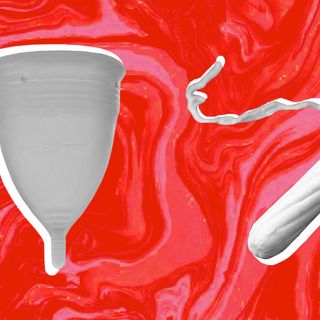
Encouraging Kids Can Backfire If You Don’t Get the Wording Right
Focus on what they can do, not who they can be.

‘Grit’ has been a parenting buzzword in recent years, ever since researcher Angela Lee Duckworth so dubbed the mixture of resilience and persistence in 2016, and found it to be the biggest predictor of professional success. Everyone wants to know how to teach kids grit, and the secret to that is, according to Duckworth, in instilling growth mindset. And the secret to instilling that, according to the researcher behind mindset theory, is in praising effectively.
Now, a new study suggests that teaching grit, perseverance and growth mindset to kids also comes down to encouragement for kids. Encouraging young children “to help” fosters more perseverance than urging them “to be a helper,” finds researchers at New York University, US. It’s the difference between focusing on actions and behavior, versus identity, they say.
“Using verbs to talk to children about behavior, such as ‘you can help,’ can lead to more determination following setbacks than using nouns to talk about identities — for instance, ‘you can be a helper,'” explains the study’s senior author, Marjorie Rhodes, an associate professor in NYU’s department of psychology.
Article continues below
The findings run counter to an unrelated 2014 study that found children the same age help more when asked “to be a helper,” than when asked “to help.”
The new study found this wording, while perhaps prompting more helpfulness initially, backfired if children experienced a setback.
In a series of experiments, children aged 4 and 5 were asked either “to help” or “to be helpers” as a researcher cleaned up toys. As the children did so, a real-to-life setback would occur, such as the bottom of a box breaking and spilling toys back onto the floor. Three more scenarios completed the series, with variations in terms of the degree of setback experienced (easy to difficult), as well as variation as to the beneficiary of the task (either the child or the researcher).
The team found that children asked “to help” were as likely to help in challenging scenarios that benefited only the researcher, as they were likely to help in easy setback scenarios that benefited themselves. By contrast, children asked “to be helpers” generally only helped when the setback was minor and they personally benefited; these children rarely helped when the researcher was the beneficiary of the task or when the setback was difficult to overcome.
The findings support mindset theory, which holds that praising children for intrinsic traits (‘You’re so smart,’ ‘You’re a great helper’) creates a fixed mindset that is threatened when setbacks occur; children with fixed mindsets tend to give up, rather than persist and risk failing again. Praising and encouraging children’s process and actions (‘I love how you kept trying new solutions,’ ‘You shared your toys very nicely’), however, instills a belief that effort and strategy lead to achievement, and helps children persevere in the face of adversity.
“This research shows how talking to children about actions they can take — in this case, that they can do helpful things — can encourage more persistence following setbacks than talking to children about identities that they can take on,” says Emily Foster-Hanson, the NYU doctoral student who led the study.
Moral of the story? When it comes to raising resilient, gritty kids and teaching them to persevere, focus on what they can do, rather than who they are.
Related


How to Keep Breastfeeding After Going Back to Work (Without Losing Your Mind)
